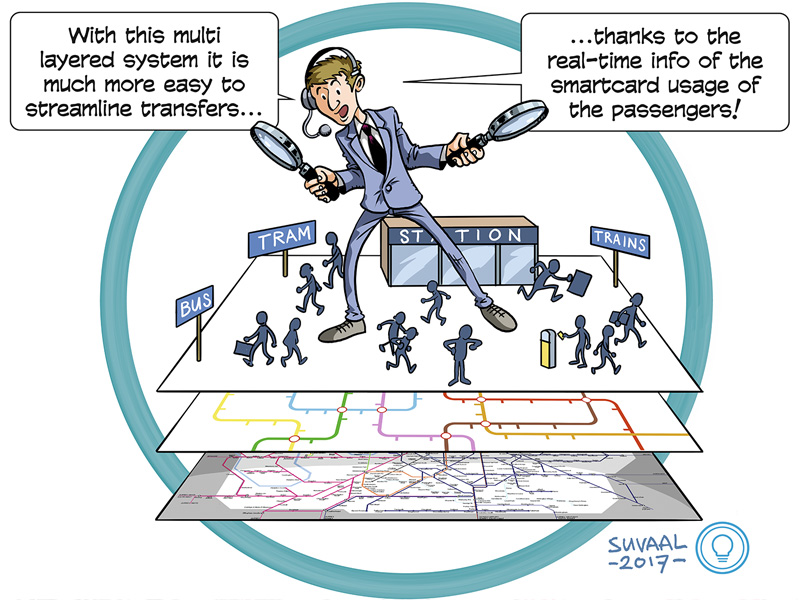Join JPI UE
Faq
FAQ
Please click here for the frequently asked questions we collected.
If you have an additional questions you are welcome to mail us at info@jpi-urbaneurope.eu
The TRANS-FORM project was a part of the ENSCC call and active between 2016-2019. The overarching objective of the TRANS-FORM project was to better understand transferring dynamics in multi-modal public transport systems and develop insights, strategies and methods to support decision makers in transforming public transport usage to a seamless travel experience by using smart data.
One of the outcomes from this project is the combination of three different models into a single framework which can be used to simulate the passenger flows across the different levels. The details about the interactions between the three models are described in Deliverable 3.4, from Task 3.4, but a short summary is provided below.
The models aren’t integrated as such, but have been designed such that they can talk to each other. On one side the pedestrian hub and PT urban model communicate, and on the other hand the train regional and PT urban model communicate. This communication is handled by a java program, the integration tool. Nearly everything needed to run the integration tool and the models is available in this GitHub repository. The only element which needs to be added is Gurobi. The version which has been used to develop the regional model is version 6.5.1. The license is available for free for academic institutes.
The data for the common case study is also contained in the repository. The case study covers the Netherlands for the regional model, Den Haag for the urban model and the Den Haag central station for the hub model. The setup is already done and the integration tool should work out of the box for this common case study.
The integration tool is responsible for running the different models and producing the output. The tool’s user interface can be opened simply by running the java executable.
Smart cities and communities rely on efficient, reliable and robust transport systems. This project will contribute to a better understanding of how people move in different levels of the public transport network and to offer new techniques to adjust public transport services to respond to actual demand levels. Three case studies in the Netherlands, Sweden and Switzerland will measure how travellers transfer within terminals and urban and regional networks, in order to develop methods for predicting passenger flows, quantify the reliability of passenger experience and evaluate strategies for improved coordination between travel modes, especially in case of disturbances.


TRANS-FORM – smart transfers through unravelling urban form and travel flow dynamics
Duration: 2016-2019
Internet: www.trans-form-project.org
Contact: Dr. Oded Cats, Delft University of Technology
E-mail: o.cats@tudelft.nl
Budget: 1.295.855 EUR
Partners: Delft University of Technology, Linköping University, École Polytechnique Fédérale de Lausanne, Blekinge Institute of Technology, IBM Research GmbH, ETRA